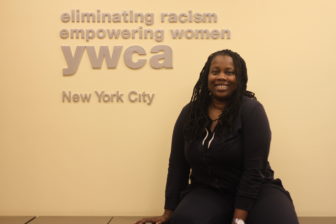At NPQ, respect for our readers’ work, intelligence, and insight is core to all we do. And, indeed, research says that the nonprofit workforce is motivated differently than the other two sectors. So, we thought we would go out and ask them. The result is this special online series that will run every workday for the next month, illuminating what motivates each of twenty profiled workers.
We think much of what they say will resonate with you, but this is also who NPQ serves each day. They are why our work is so important, and NPQ can’t exist without your contributions.

Why NPQ serves Merle proudly…
Sign up for our free newsletters
Subscribe to NPQ's newsletters to have our top stories delivered directly to your inbox.
By signing up, you agree to our privacy policy and terms of use, and to receive messages from NPQ and our partners.
There’s nothing greater for me than the experience of being with a young person, or traveling the world with a young person, and witnessing their awakening to what’s possible.
What I understand now, as a person who’s had some time and experience in the sector, is that the circumstances under which people arrive in crisis are really influenced by larger structural realities of what is available to them in life. How we think about people living in poverty or in under-resourced communities is often driven by this flawed “personal responsibility” narrative that doesn’t take into account the contextual realties of why someone is in the circumstances that they’re in. I believe the work I do now is both striving to create opportunities and access within communities that are marginalized or neglected and focused on amplifying, deconstructing, and absolute truth-telling about the institutional and structural barriers that create obstacles to equity.
We’re asking a lot of our young people to remain hopeful when many markers of their communities indicate that no one else is hopeful for them. The ways in which we think about equity, whether that’s “everybody gets the same” or “people get what they need,” should also include eliminating barriers that created those obstacles for people in the first place. I strive to focus on, sitting from my particular vantage point, how to hold space for that kind of meaningful accountability to the people we’re supposed to serve. When someone offers an opportunity to a young person, it should not come with a whole set of limiting strings. Or, in the case of an institution, the dollars that come should include reasonable overhead so that we’re not spending unfunded monies administering a grant instead of applying more resources to deliver service. I feel compelled both to amplify the interpersonal realities of what folks want and need to access the life that they want, while also engaging the ways structural barriers can impede an individual’s right to self-determination—and recognizing that those things and that work are not mutually exclusive within the context of a nonprofit. The challenge for us in the sector is recognizing to what extent we are doing social work, social change, or both. I do this work in hopes of building the world that I want to live in.
Why Merle cares about NPQ…
One of the things that I’m really starting to appreciate about NPQ is its ability to help the sector organize around issues that affect us all—so, transforming the conversation around responsible evaluation practices, responsible conversations to have around increasing the understanding of the sector, the need to have more realistic overhead for nonprofit organizations to deliver high-quality programming. I think the ability to provide information, but also to bring people together to organize around issues that are vital and important to the sector, is really for me the value added with the publication.













